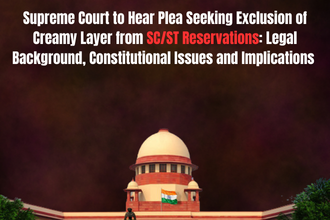In a landmark ruling that sends a powerful message to the media industry, the Kerala High Court has cautioned media houses against the unethical and unchecked practice of publishing or telecasting unverified, one-sided stories aimed solely at increasing Television Rating Points (TRP). The judgment, delivered by Justice A. Badharudeen, highlights the urgent need for journalistic integrity, responsibility, and adherence to the principles of natural justice.
The Growing Concern Over TRP-Driven Reporting
The court’s strong observations came while quashing a POCSO (Protection of Children from Sexual Offences) case filed against employees of Asianet News, including Executive Editor Sindhu S and five others. They had been booked for allegedly conspiring and disclosing the identity of a rape survivor during a televised program aimed at TRP gain.
Justice Badharudeen observed that the channel may not have had any intent to harm the survivor or the public. However, the court expressed concern over a growing “survival strategy” among certain media outlets—reporting sensational news without proper verification to garner more viewership.
“In this endeavour, mere allegations are being published, telecast, and circulated without further investigation… and even without getting the words of the aggrieved,” said the court, underlining how such practices can seriously tarnish reputations and mislead the public.
Reinforcing the Core Ethics of Journalism
The Kerala High Court’s ruling is a timely reminder that journalism is not just a profession—it’s a public trust. Media houses have both a journalistic and moral responsibility to verify the truth before publishing or telecasting news. Justice Badharudeen emphasized:
“It is high time for channels and media to be more vigilant… to include the version of the other side (the person against whom the allegations are leveled)… and only then report both versions to the viewers and readers.”
This aligns with the fundamental principles of natural justice, which demand that every party be heard. Ignoring this principle results in biased reporting, often leading to irreversible damage to the reputation and dignity of the individuals involved.
Impact on Legal and Social Justice
The court’s verdict, delivered under Case No: Crl.MC 9008 of 2024 (Sindhu S. & Others v. State of Kerala), sets a precedent in media jurisprudence. It directly addresses the dangerous trend of “trial by media” where individuals are portrayed as guilty without any legal conviction, based solely on allegations.
“Channels are boosting up the intention of the persons who made the allegations… with the intention to tarnish the image of the person,” the court remarked, urging restraint and ethical conduct.
In quashing the POCSO case against the journalists, the court sent a dual message: While intent matters, media must not misuse its platform to defame others under the garb of public interest.
Media Trials vs. Legal Trials: A Dangerous Conflict
The High Court’s decision draws a clear line between judicial due process and media sensationalism. In recent years, we’ve seen countless examples where media outlets jumped the gun, labeling individuals as criminals before the courts could even begin hearings.
Such media trials undermine the criminal justice system, influence public opinion, and may even prejudice ongoing investigations. This ruling aims to balance freedom of the press with accountability, ensuring that journalism serves its role in a democracy without overstepping legal boundaries.
Calls for Regulation and Accountability
This landmark judgment renews calls for stricter media regulation and oversight. While India has a vibrant and largely free press, the absence of effective regulatory enforcement has led to a surge in TRP-driven sensationalism, often at the cost of truth and ethics.
The ruling underscores the need for:
- In-house editorial checks and fact verification processes
- Equal representation of all parties in a story
- Sensitivity in handling cases related to sexual violence and minors
- Training for journalists on ethical reporting standards
Legal and Public Reactions
Legal experts and journalists alike have welcomed the court’s observations. Many see it as a positive reinforcement of journalistic standards that have been eroded by the race for ratings.
Public trust in news media is at an all-time low, and such rulings can help restore faith. By reminding media outlets of their constitutional and social responsibilities, the High Court has provided a much-needed course correction for the industry.
The Verdict at a Glance
- Case Title: Sindhu S. and Others v. State of Kerala
- Case No.: Crl.MC 9008 of 2024
- Citation: 2025 LiveLaw (Ker) 236
- Key Issue: Media disclosure of rape survivor’s identity in a TRP-driven telecast
- Judgment: POCSO case quashed, with cautionary remarks to the media
- Court’s Stand: Uphold journalistic ethics, report both sides, verify facts
Conclusion: A Wake-Up Call for the Media
The Kerala High Court’s judgment is not just a legal opinion—it’s a wake-up call for the Indian media landscape. As the fourth pillar of democracy, the press has immense power, but with power comes responsibility.
This decision reaffirms the importance of truthful, balanced, and responsible journalism, and urges media houses to prioritize public interest over TRP. With the digital age amplifying every voice, the need for ethical media practices has never been more critical.
Will this caution be enough to spark change? Or will media houses continue chasing headlines at the cost of human dignity and justice?
Only time—and accountability—will tell.


